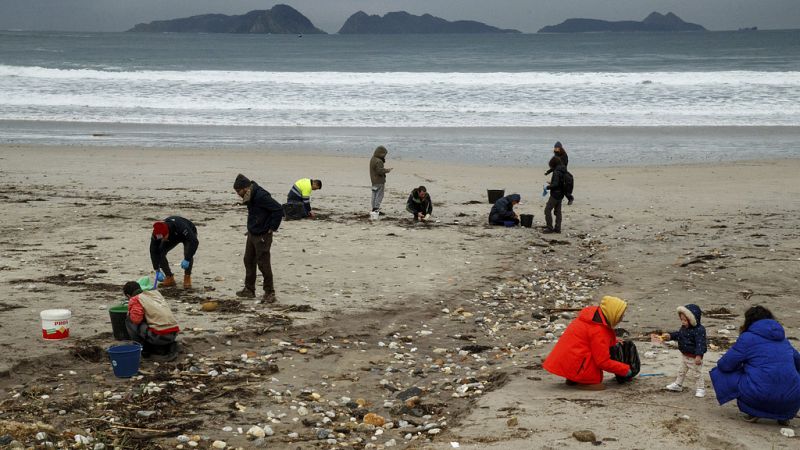
The European Parliament and EU governments have agreed rules designed to reduce the risk of accidental microplastic pollution, in the wake of recent incidents where spills led to millions of small particles washing up on European beaches.
The European Commission estimates that over 50,000 and possibly up to 184,000 tonnes of plastic pellets – known as nurdles and used to produce everything from toys to plastic bottles – are inadvertently released into the environment each year.
But despite the scale of the problem, and the fact that 38% of shipments in Europe are carried by sea, the EU executive had chosen not to include maritime freight in its proposal to impose stricter safety standards on the transport of pellets.
MEPs and governments disagreed, however, and the provisional agreement on the new legislation means firms shipping nurdles in containers must ensure they are in good quality packaging, and provide detailed information on their cargo in line with guidelines set by the International Maritime Organisation.
The law – which awaits a rubber stamp from the parliament and EU Council – requires independent audits for medium and large operators, while companies handling over 1,500 tonnes of plastic pellets a year will have to obtain independent certification of conformity with the new rules.
Despite the resultant exemptions for swathes of small- to medium-sized companies, the political deal was welcomed as a “ground-breaking regional approach” to pollution control.
“It is a huge relief to see EU decision-makers endorse a binding regulation with a broader scope to fight both land- and sea-based sources of pellet microplastic pollution,” said Frédérique Mongodin, a policy officer with the campaign group Seas At Risk.
“The Commission got it right by adopting a supply chain approach to ensure a uniform implementation of prevention and clean-up measures,” Mongodin said. “The inclusion of maritime transport was a welcome addition, likely driven by recent container ship accidents, although with an unjustified three-year delay.”
The move by EU legislation comes amid a growing mountain of scientific evidence of the dangers of microplastics, which have now been found in almost all life forms on the planet and can even cross the blood-brain barrier in humans.
“By holding polluters accountable, we can prevent future ecological disasters like those already witnessed in Spain, the Netherlands, and the North Sea, where millions of plastic pellets have washed ashore and contaminated the land,” said César Luena (Spain/S&D), who steered the legislation through the European Parliament.
The new legislation is the first specifically aimed at accidental microplastic pollution, after a law adopted in September 2023 set in motion the phase out particles deliberately added to a range of products, from lipstick to artificial sports pitches.







